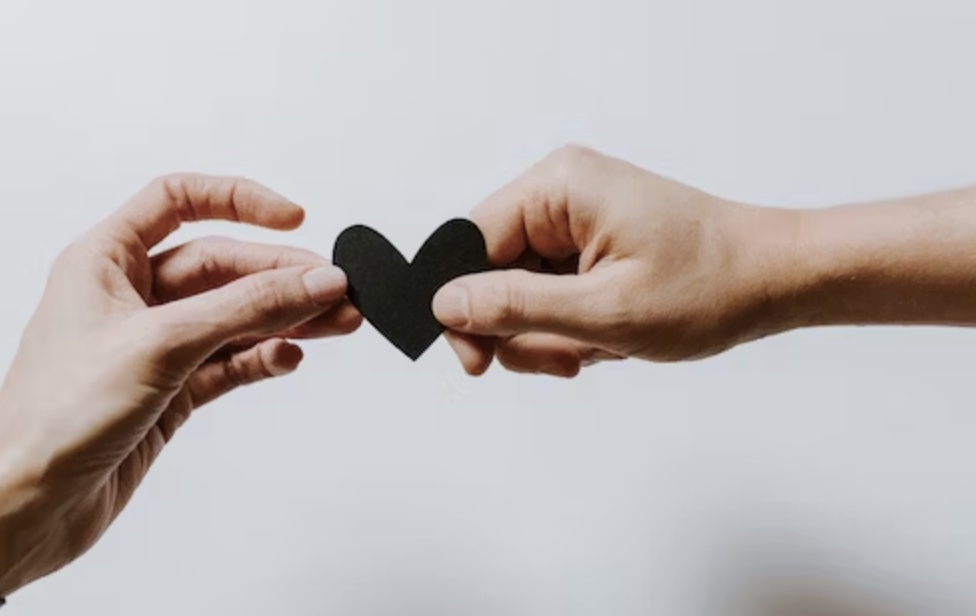Cheating, as it implies in a relationship, may be difficult to define. For some people, cheating might only include getting involved in sex with someone other than your partner. But for others, flirting counts.
Most times, what constitutes infidelity in marriages and relationships, is the violation of our expectations of faithfulness.
In the courting stage of a relationship, partners must talk about specific actions that will bring about the betrayal of their expectations. Defining what you consider as cheating or infidelity in their relationship, early on will hopefully prevent future confusion to arise.
For example, if you have openly expressed flirting outside of your relationship is a deal-breaker, and it will make you uncomfortable, it will be regarded as cheating if your partner still engages in such conduct after this. I say be extremely specific and detailed with your cheating definition. The clearer you are upfront, the less likely situations will occur later on.
Anna Karenina by Leo Tolstoy explains how indistinguishable all happy relationships are while each unhappy relationship is unique in its way. I agree with this.
Infidelity, as shown in a recent study by the American Psychological Association in the U.S, proves to be responsible for 20% – 40% of divorces, and almost one-fourth of all marriages experience infidelity at some point. And that is simply counting the people who answered honestly or acknowledged it.
Why? Where did it go wrong? Why did they do it?
These are the inevitable questions individuals who have experienced infidelity, in one way or the other, in their relationship ask, but as earlier mentioned that each unhappy relationship gets tangled with its unique perspective of infidelity. I will briefly discuss physical and emotional kinds of cheating to give answers to these questions.
Emotional Affairs vs Physical Affairs
The traditional definition of cheating entails having sexual relations with someone else other than your partner or spouse while in a committed relationship, but with technological advancement in cell-phone development and the internet, this definition, although it still incorporates the old one, also extends to having feelings or thoughts that comprise emotional infidelity.
The primary distinguishing factor between emotional and physical cheating is physical contact. Cheating usually involves meeting face to face and then engaging in “physical” sex or intimacy. Cheating emotionally, however, entails sharing an intimate emotional connection with someone other than your partner.
You may begin to wonder how this connection crosses the boundaries of a platonic, healthy relationship and assumes a breach of trust within the primary relationship.
“It is clear that there is no direct physical or sexual contact, and it shouldn’t be a criterion to judge your partner’s commitment.”
I would have agreed if I didn’t have my own experience or receive “breakfast” on a platter of tears and regrets. I also believe these are the initial thoughts of many victims of broken relationships and marriages caused by infidelity.
I will be more practical.
Jane reconnected with Dan, her ex from high school, on Facebook. Both parties had a lot to catch up on and soon found themselves sharing intimate details about how their current relationship is going. Conversations like this tend to be limitless, especially when there are lapses in your current relationship.
Soon after, an emotional attachment is formed and also a feeling of mutual support for each other. Both Jane and Dan start wondering why they ever broke up, seeing that there are still so many things in common between them.
They start longing to see each other and to relive their teenage love ecstasy.
The result of this, even if both parties are miles apart, is that an emotional attachment is now in place, which in turn reduces their emotional attention to their partners. Gradually, they remove themselves from the commitment they made to their primary relationship.
Signs of Infidelity In a Relationship
The signs that depict infidelity may vary depending on the kind of infidelity in question. Both types of cheating start from the initiation of conversations. As humans, social interaction is essential to every aspect of our well-being. However, when in a committed relationship, one should be cautious of engaging in interactions and conversations that may breach the trust between partners.
For instance, intimate emotional attachments result from having unchecked conversations, especially in the digital media space, which at first may seem like every other casual interaction, just like in the case of Jane and Dan. As the people involved become more familiar, personal information is shared, and it becomes a free highway from there.
The primary sign of emotional cheating is an emotional disconnect from the primary partner or turning to the third party for comfort instead of the primary partner. Other clues may include
- sharing inappropriate details about your relationship with the third party
- comparing your primary partner with the third party
- being secretive about your secondary relationship
- reducing its significance to your primary partner
While emotional cheating may not be seen as harmful as traditional cheating, it may lead to other kinds of infidelity and cause an emotional disconnect between partners. This is likely to lead to a breakup and also divorce just as a physical affair.
Healing and Moving on from Cheating in a Relationship
Note that, just before concluding that your partner is cheating, you might also want to do a quick check on your insecurities if they are not pulling a fast one on you.
There’s no getting around it. Cheating hurts!
It hurts to watch friends experience any form of infidelity in their relationships. It hurts more to be a victim of infidelity. Even the one who cheats carries around a burden of lies to cover up their deeds. The guilt from cheating can be enormous.
While many may be unable to continue in a relationship after they have been cheated on, it is sometimes good to look at the problems that may have led to these acts to prevent the same thing from happening in the next relationship.
At times, intimacy in a relationship, or the lack thereof could be an issue and could cause space for cheating to occur.
Cheating is usually a symptom of a bigger problem, such as the lack of intimacy, love, and affection in a relationship. It may also be a case of addiction. Separating the symptom from the problem is the first step to finding closure or making amends to your relationship.
Whether you decide to stay or walk out of a relationship after you have been cheated on, there will be trust issues you are going to have to sort out.
Will they cheat again? Will the next person end up cheating on me as well?
That is why you need to figure out the root of the problem.
Cheating can destroy even the strongest of relationships, and it can happen more than once. Building trust back up in any relationship is not easy, but not impossible. If you focus on the root cause of the problem, you can learn to trust again over time.
Cheating that occurs due to opportunity or boredom would require deep thoughts as to whether you can forgive them or not. Whatever it is that you decide about your relationship status, make sure to commit to it, while also trusting your decision.
Some relationships can thrive and even blossom into something greater after an affair. Closson M., speaking about infidelity in his marriage, “People have a hard time understanding what I mean when I say, it was probably the best thing that could have ever happened to me, and my wife. We are now closer and stronger than ever before because of it.”
Resolving the underlying problems will help in newfound love and respect.
Rebuilding trust in a relationship will not come easy, and there will be constant worry that cheating may occur again. The cheater may remain under constant pressure from someone wanting to know their every move every minute of every day. This can be quite unbearable, but it should be something that is discussed.
Ending any relationship can have lasting effects on both parties. You should never take this decision lightly.
Employing the services of a counselor may help build back the broken bond in your relationship. I recommend that you go for some therapy sessions and read books that will help you heal if you decide to end the relationship. You must also be open to hearing from the other person, be completely honest about your feelings, and desires, and be committed to working through the needs and wants of your partner to get to the other side.
You do not deserve to go through any form of infidelity, especially in the hands of those who claim to love you. I hope you make the right decisions if you are going through this phase in your relationship.
Author Bio:
Emmanuel Oyagha is a versatile writer who has written over 50 articles on lifestyle, science, business, technology, and marketing. He believes so much in the power of psychology and its leverage on self-development and solving human misunderstandings. He finds it fulfilling writing on relationship and self-help topics, as it helps people get answers to difficult questions and situations surrounding their relationships and lifestyle. He is a graduate of Environmental Management and Toxicology. He currently resides in Lagos, Nigeria.














